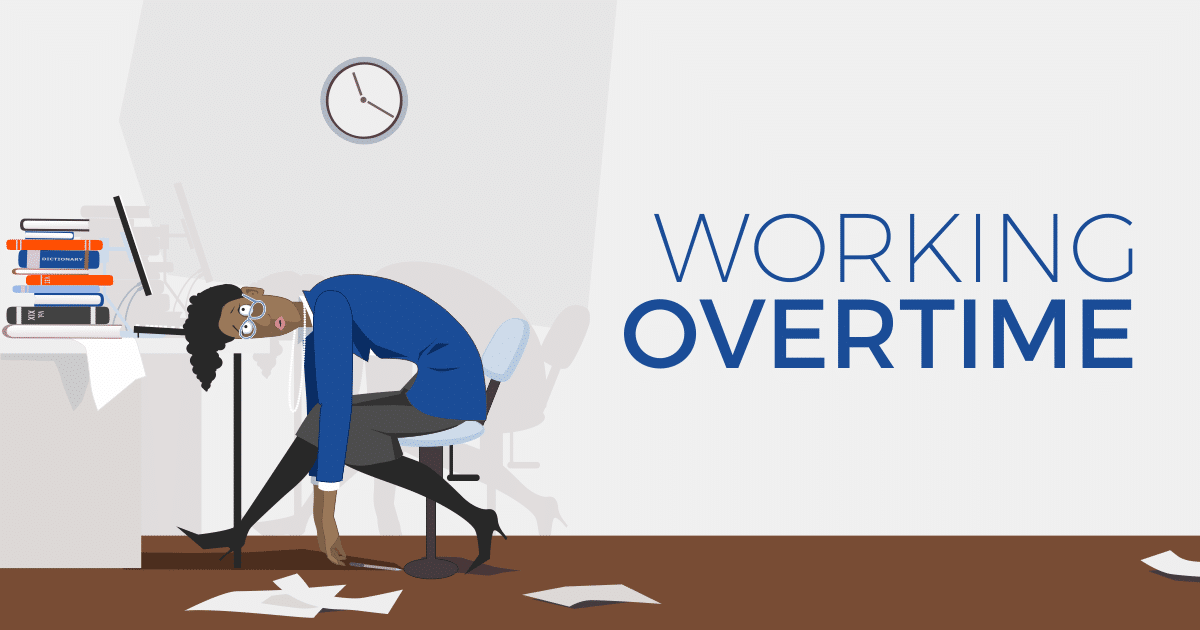
12th November 2018



Working overtime occurs when you spend additional time beyond your agreed and contractual hours at work. The concept of working overtime is not alien to most employees but it can be harmful to your productivity. Some have argued that it ensures that work gets done but this does nothing to change how it impacts productivity.
When working overtime becomes a norm, it can be harmful to your performance. What happens is that after some time, the law of diminishing returns will set in. You might initially get work done by working extra hours but its long-term effect will come back to haunt you.
If you are getting paid for working overtime, several studies have shown that it can be detrimental to your health. Here are 3 things to know about working overtime.
- What Nigerian Law Says
According to the Nigerian Labour Act, a one-hour break is required of employers per six hours of work done by every employee. In the Nigerian context, overtime accrues to an employee when he/she works in excess of their working hours stated in their employment contract.
The Nigerian Labour Act is not specific on pay per hour or minute for employees. However, employees and their employers are expected to set an agreed rate for overtime pay and it has to be a contractual agreement. As such, an employer cannot force any given rate down the throat of an employee.
- Diminishes Productivity
Most employees who are paid overtime use it as an avenue to earn more on their paycheck but according to the International Game Developers Association, working overtime will drop your productivity “immediately upon starting over time and continues to drop until, at approximately eight 60-hour weeks, the total work done is the same as what would have been done in eight 40-hour weeks.”
For both the employer and employee, this will lead to poor results in the long-term. It will also have a negative impact on your ability to reach set goals but unlike the organisation, in the case of an employee, poor performance can lead to being shown the door.
- Don’t Normalise It
Working more than 55 hours a week maximises your risks of facing health challenges according to a study. Learn how to say no and prioritise your well being. There is no point earning money you are most likely to spend in the hospital in the days ahead. It can be tempting to go for the extra cash but don’t hesitate to ask for more time from your manager is the timelines handed to you are not realistic.
Final Thoughts On Working Overtime
Communication is key at the workplace – Endeavour to prioritise your work in a way that you do not have to find yourself working overtime. If the situation you find yourself makes this impossible, find time to rest and strike that work-life balance.
Regardless of your situation, bear in mind that the long-term benefits of working overtime to you, your career and organisation are far less important compared to the longtime pains.






